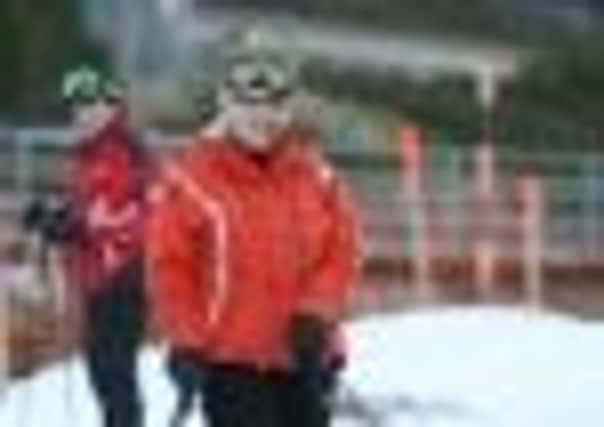Roger Cox: Myrtle Simpson rightly honoured
This article contains affiliate links. We may earn a small commission on items purchased through this article, but that does not affect our editorial judgement.


THIS month, as part of the Fort William Mountain Festival, the pioneering skier and mountaineer Myrtle Simpson will receive the Scottish Award for Excellence in Mountain Culture, joining an elite group that includes Hamish MacInnes, Richard Else, Jimmy Marshall, Ian Sykes and Adam Watson. When I call Simpson at her home near Insh in Inverness-shire and congratulate her on the honour, she chuckles modestly and says: “I don’t know why I got it, really”. But in truth, the 82-year-old’s achievements are so numerous and varied it was surely only a matter of time before she was recognised in this way.
Advertisement
Hide AdOn the mountaineering front, Simpson was involved in the early days of mountain rescue in Fort William, working alongside the ingenious innovator of rescue kit, Donald Duff. She was one of the first people to act as a mountain guide on Ben Nevis, too, leading visitors up Tower Ridge, and was also a member of the Edinburgh Andean Expedition of 1958, during which she bagged six first ascents of peaks over 19,000ft along with Billy Wallace and Hugh Simpson, whom she would later marry.
Her achievements in long-distance Nordic skiing are equally impressive: she was the first woman to ski across the Greenland Ice Cap and also achieved a “furthest north” for a woman travelling unsupported in an attempt to ski to the North Pole.
And then there are her contributions to mountain literature – not just her book Skisters, a history of the early days of Scottish skiing, but also the first-person accounts of her many adventures, some of which first appeared in The Scotsman. Her dispatches from the Andes, serialised in this paper in November 1958, are particularly evocative. (To read them, follow the link at the bottom of the page.)
Simpson didn’t grow up in the hills – born in Aldershot in Hampshire, she developed an interest in climbing while training as a radiographer in Edinburgh, and set up a weekly shuttle to the Highlands for other enthusiasts, which became known as “Myrtle’s Bus”.
It wasn’t until she moved to Fort William in 1953, however, to take up a post at the Belford Hospital, that her love affair with the mountains began in earnest. “My first job was with Donald Duff,” she says. “He was the chief of the Belford Hospital and a well-known Welsh climber. His great interest was mountain rescue, and all the time he was inventing better stretchers. If it was a good day we’d close the hospital and go out and practice with his newest stretcher.
Advertisement
Hide Ad“I didn’t have any spare money so I camped at Achintee, at the foot of Ben Nevis, for a whole year. I suppose because of my relationship with Duff the local climbers sort of accepted me, so for a whole year every spare minute was spent on the hills.”
With Ben Nevis just a stone’s throw from her tent and some of the best climbers of the day on hand to show her the ropes, it wasn’t long before Simpson felt she was “a dab hand” at climbing – so much so that she set herself up as a mountain guide.
Advertisement
Hide Ad“I think I must have been one of the earliest guides,” she says. “I used to charge people ten bob to take them up Tower Ridge. There was a gang going to the Alps so I needed more money so I could go too.”
Simpson describes a cosmopolitan mix of climbers living in Fort William at the time – some of them Oxbridge graduates drafted in to work on engineering projects such as the Cruachan Dam, some of them labourers relocated from the soon-to-be-demolished slums of Glasgow. “It was an unlikely wave of people,” she says.
Simpson went on to achieve fame for her exploits in exotic, far-flung locations – first New Zealand and the Andes, then the frozen wastes of the Arctic – but the foundations of her adventurous career were laid in the 1950s, in the hills around Fort William, a time and a place she describes as “absolutely magic”. So when she travels to the Nevis Centre to receive her award on 23 February, it will be a homecoming in more ways then one.
• The Fort William Mountain Festival runs from Wednesday until 24 February, see www.mountainfestival.co.uk.